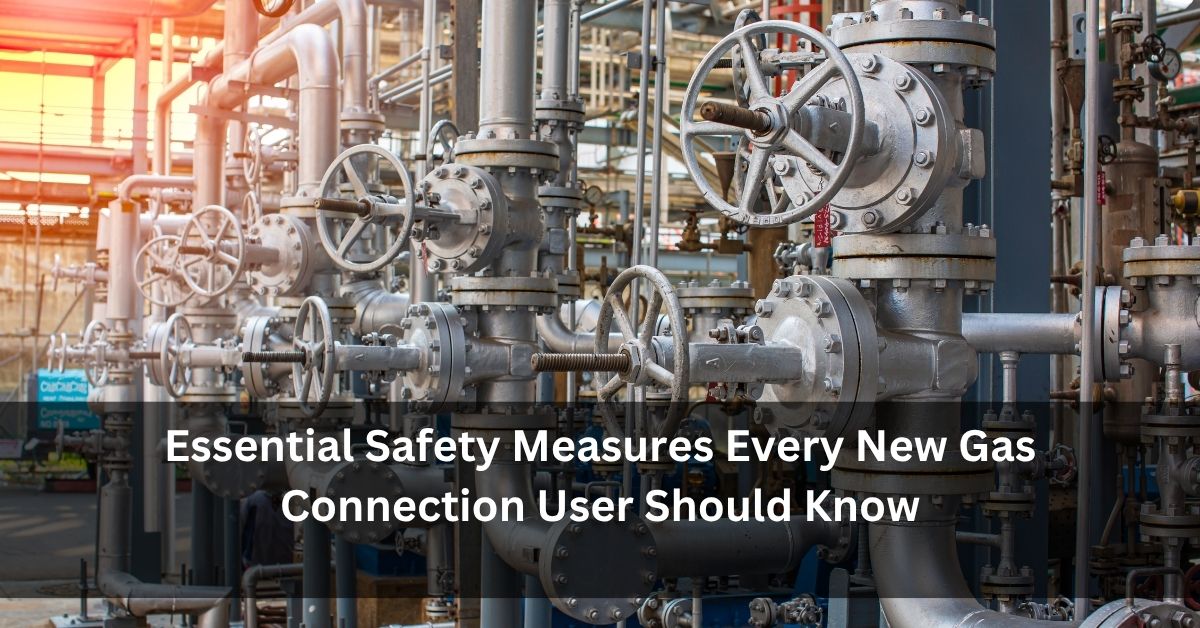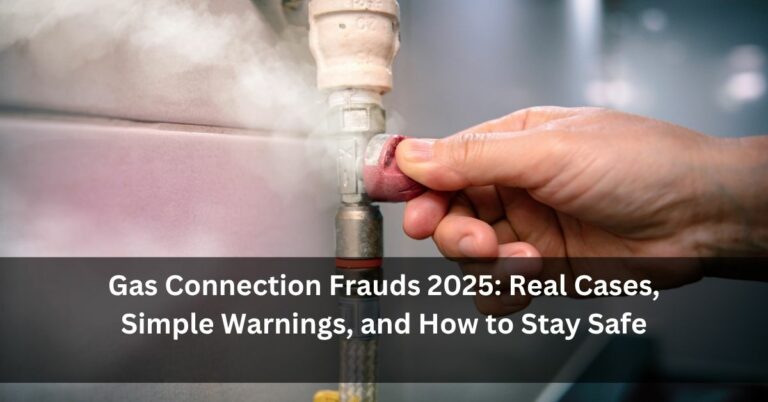Essential Safety Measures Every New Gas Connection User Should Know
Getting a new gas connection is common in many Indian homes. Whether you’re moving to a new place or setting up your kitchen for the first time, a gas connection makes cooking easier and faster. But while using gas is convenient, it also needs care.
A small mistake can lead to a big problem like a gas leak, fire, or even a blast. That’s why knowing the basics of gas safety is very important — especially for new users. At Portal Chakshu, our aim is to help you stay informed and safe with simple tips that anyone can follow.
Before You Accept a New Gas Cylinder
When the gas agency delivers your first cylinder, don’t be in a hurry to sign and take it in. Check the following things:
- Check the seal: The cylinder must have a proper company seal and a plastic cap on the valve. If it looks open or broken, do not accept it.
- Look at the testing date: All cylinders have a safety test date printed on the metal ring on top. It will look like “C-25”, which means the cylinder is valid till the third quarter of 2025. Avoid old or expired ones.
- Ask the delivery person for a demo: If this is your first time using gas, ask them to show how to attach the regulator and how to check for leaks.
- Check the weight: A full domestic cylinder should weigh around 29–30 kg. Ask them to weigh it if you’re not sure.
Portal Chakshu always suggests checking these things to avoid any safety issues from the start.
Where and How to Keep the Gas Cylinder?
Once the cylinder is inside your kitchen, placement matters. Here’s how you should set it up:
- Keep it upright: The cylinder should always be standing straight. Never lay it down on its side.
- Avoid closed places: Don’t keep the cylinder in a cupboard or tight corner. Keep it in an open, airy space.
- Keep it away from flames and wires: Make sure it’s not too close to the stove or any electric wires.
- Use a platform for your stove: Always keep your gas stove on a platform above the level of the cylinder.
These steps are easy but often ignored. Many accidents happen because the cylinder was kept too close to heat or in a closed box without airflow.
How to Use Your Gas Stove Safely?
Everyday cooking becomes routine, and people stop paying attention. But a few habits can make a big difference:
- Light the match first: Always strike the match or switch on the lighter before turning on the gas.
- Never leave the stove on and walk away: Even if it’s just for 5 minutes, unattended cooking is one of the main reasons for kitchen fires.
- Turn off the regulator after cooking: Most people turn off only the stove knob. But it’s important to close the regulator on the cylinder too.
- Change the pipe regularly: The rubber pipe connecting the stove and cylinder should be changed every 6 to 12 months. Use ISI-marked pipes only.
We’ve seen that following these habits greatly reduces gas-related risks. Portal Chakshu often shares these tips because even small steps can protect your family.
What to Do If You Smell Gas?
Gas leaks can happen, and it’s important to know what to do when it does. If you smell gas in your home:
- Don’t panic
- Do not switch on any light or fan
- Turn off the stove and the regulator immediately
- Open all windows and doors to allow fresh air
- Do not light a match, incense stick, or candle
- Use soap water to check for leaks — Apply the solution to the pipe and cylinder joints. If bubbles form, there is a leak.
If you’re still unsure, call your gas agency and ask them to check. Keep their number saved in your phone and written somewhere in your kitchen.
Teach Others in Your Home
Gas safety is not just your job. Everyone in the family — especially children and older adults — should know the basics.
- Show them how to turn off the regulator.
- Tell them what to do if they smell gas.
- Teach them not to play near the cylinder or stove.
Portal Chakshu often reminds users that awareness at home is the first step to safety.
What Not to Do?
Let’s quickly go over things you should never do with a gas connection:
- Don’t keep plastic items or cloth near the stove.
- Don’t wear loose synthetic clothes while cooking.
- Don’t try to repair a gas leak on your own.
- Don’t use old or untested regulators and pipes.
- Don’t ignore even a small smell of gas.
These might seem like common sense, but many accidents happen because someone thought “it’s nothing serious.”
Final Thoughts
Getting a gas connection is a simple process. Using it safely should be just as simple. A few precautions can save lives and protect homes. Whether you’re new to using gas or have been using it for years, it never hurts to double-check how you’re doing things.
Keep checking Portal Chakshu for more easy tips and updates on gas connection safety, digital scams, mobile alerts, and more. Our goal is to make sure you always stay informed — without confusing words or hard-to-follow steps.







